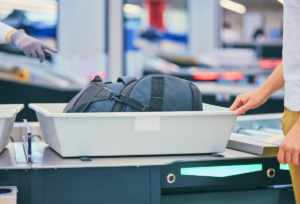Joanne Turner, a flight attendant for East-West Airlines who fell ill as a result of breathing “toxic” air on an aircraft has been awarded damages by the Australian High Court.
Mrs Turner was five months pregnant when she fell ill after smoke infiltrated the cabin during a flight on a British-built BAe 146 aircraft flying from Sydney to Brisbane in 1992.
The flight attendant suffered long-term respiratory problems following the incident and sued the airline in 2001, however it has taken 10 years for her to be awarded £84,000 in damages from the High Court.
Scientists refer to Mrs Turner’s condition as Aerotoxic Syndrome. Many claim that the toxins can enter the cabin as a result of the “bleed air” system that is used on modern aircrafts. Air is drawn out of the compression section of the planes engine and cooled. It then enters the cabin where it mixes with re-circulated air that has passed through filters designed to remove bacteria and viruses.
However, although these “re-circulated air” filters remove bacteria and viruses, they do not abstract fumes or vapours from the engine. So if hydraulic fuel or engine oil leaks, toxic chemicals can contaminate the air supply, they say.
A Telegraph Travel investigation in 2008 revealed that hundreds of incidents involving contaminated air had been reported by British pilots. Scientists, former pilots and aviation pressure groups have accused the industry of knowing about the problem for decades and doing little to challenge it.
Undercover investigators claimed to have found high levels of a dangerous toxin on board several planes last year. As part of an investigation by ARD, a German television network, and Schweizer Fernsehen (Swiss television), 31 swab samples were taken from aircraft cabins among many popular airlines.
The swab samples were analysed in laboratories at the University of British Columbia and 28 of which where found to contain high levels of an organophosphate contained in modern jet oil, which is known to cause headaches, drowsiness, respiratory problems or neurological illnesses. Some scientists also believe that it can pose a risk to unborn babies and affect gene expression.
Mrs Turner said that getting compensation had not been her motivation in bringing the action, however after a 10 year wait, I’m sure she’s more than happy with the £84,000 she received.
She said “I just hope it will help fellow crew members who also have cases before the courts and help the industry become safer”.
Mrs Turner might just be right, as the Boeing Dreamliner 787 which is due to be launched next year, will be the first passenger jet since the mid-Fifties to use air supplied from a source other than the engine.
The flight attendants victorious ruling could be a landmark case for the airline industry and could open all sorts of doors for future claimants who’ve suffered a similar illness to Joanne’s.




